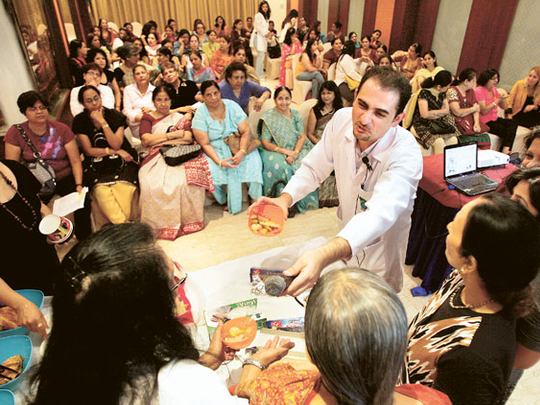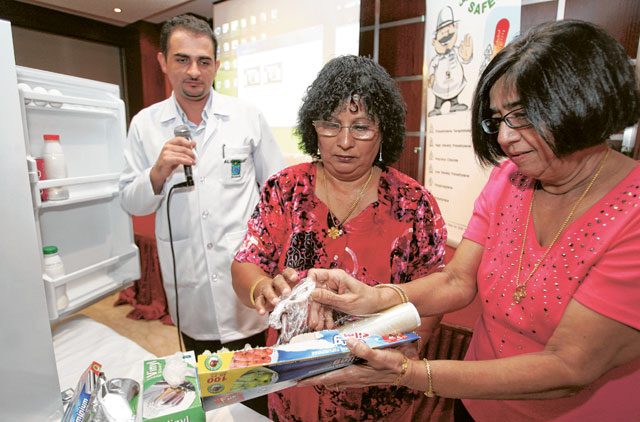
Dubai: Cut fruit and sandwiches put directly into a box, pickles wrapped in aluminium foil, fresh juice carried in a bottle — these are some of the common mistakes people make while packing their lunch, a recent campaign has highlighted.
Air-tight zipper bags are a safer option for carrying sandwiches and cut fruit, said Ala'a Al Ashoush, Group Quality Control Manager at packaging company Al Bayader International, which has partnered with Dubai Municipality for the ‘Pack It Right' campaign.
The new initiative is aimed at creating greater awareness among parents and schoolchildren about the dangers of using the wrong material for packing and storing food.
According to Salem Mesmar, Assistant Director General of Dubai Municipality, "The fast-paced lifestyle of people living in Dubai has drastically changed the way we prepare and store food for daily consumption at home, for our schoolchildren as well as in the workplace. Inadequate knowledge about the proper use of food packaging material that comes in direct contact with food can pose a threat to the health, safety and well-being of the community."
Khalid Mohammad Sharif, Director of Food Control Department, said: "We launched this food safety campaign to provide people with basic knowledge about various kinds of food packaging material readily available in the market and how each material actually interacts with the food or beverage that one puts in it."
Al Ashoush said: "Before you put a sandwich in an air-tight bag, make sure to remove all the air. Once inside, seal it completely. Do not reuse these zipper bags as remnants of food from the previous usage may lead to bacterial growth."
He said it is better to eat whole fruit rather than cut it and consume it later. "But if that cannot be done, make sure to put the cut fruit in a zipper bag by removing all the air. This will delay enzymatic browning and protect the food from bacteria."
Giving further tips, Al Ashoush said pre-cooked and ready meals must be consumed within two hours of cooking. The hot food can be packed directly in good quality plastic containers that can withstand heat or be wrapped in aluminium foil.
The foil is also well-suited to pack cheese and other fatty foods as aluminium acts as a good barrier to oxygen, which prevents the food from going rancid.
However, he cautioned against the use of foil to wrap pickles or any acidic food. "Aluminium foil is an alloy of metals and can react with acid under high temperature or when it is in long contact. Foil is not suitable for foods like stuffed vine leaves or any dishes that use lemon. They cannot be used in a microwave either," he said.
Al Ashoush also advised people against squeezing fresh juices and carrying them in bottles to work or school. "They are meant to be consumed fresh. Otherwise they lose their nutrients and vitamins," he added.
Even water when exposed to the sun for long can be harmful as there is the danger of polymers in plastics migrating into the water. He said it is better to use thermostat bottles to carry water and if at all plastic is used, it should be of good quality and should be replaced every three months.
Dos and Don'ts
- Do not put cut fruit directly in a box
- Use zipper bags for fruits and sandwiches
- Use aluminium foil to wrap cheese, fatty food or ready meals
- Do not use foil to wrap pickles or any acidic food
- Use thermostat bottles to carry water
- If you use plastic bottles, change every three months
- Do not carry fresh juice in a bottle for later consumption
- Do not expose water to sunlight
- Consume pre-cooked food within two hours of cooking











